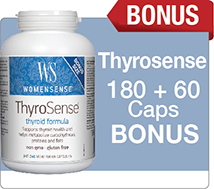- 1560 mg
- Malic acid
- 500 mg
- L-taurine
- 500 mg
- L-glutamine
- 280 mg
- Elemental Magnesium (bisglycinate)
- 270 mg
- Inulin
- 80 mg
- Vitamin E (d-alpha tocopheryl acetate)
- 55 mg
- Potassium (aspartate)
- 50 mg
- Vitamin B6 (pyridoxine)
- 25 mg
- Vitamin B1 (thiamine hydrochloride)
- 20 mg
- Vitamin B3 (niacinamide)
- 18 mg
- Di-calcium phosphate
- 150 mcg
- Folic acid
- 60 mcg
- Molybdenum (citrate)
- 25 mcg
- L-selenomethionine
- 20 mcg
- Vitamin B12 (methylcobalamine)
Format
 Powder
Powder
200g
Dosage
Mix 1 tablespoon/scoop (6.78g) in 150mL (5oz) of water or as directed by a health care practitioner.
Important Information
This product does not contain artificial preservatives, colour or sweeteners; dairy; soy; wheat; or yeast. Store in a dry place.
- Supports the heart health
- Nervous system & cellular energy
- Relieves muscle cramps
- Supports healthy muscle function
- Natural ingredients
- Formulated by Lorna Vanderhaeghe
Related Videos
No Related VideosArticles by a naturopathic doctor.
Lorna Vanderhaeghe's products are designed to empower women to take control of their health. Founded in 2010, Lorna Vanderhaeghe's natural health products include ADRENAsmart, BONE BOOSTER, CALA-Q plus, Celadrin Skin Cream, CLA plus, COLLAGEN plus, ESTROsmart, GLA Skin Oil/Gels, GLUCOsmart, IRONsmart, SLEEPsmart and more!
- Supports the heart, nervous system and cellular energy
- Relieves muscle cramps
- Supports healthy muscle function
Magnesium is an abundant mineral in the body that is necessary for many organs and tissues to function properly. Its deficiency has been implicated in cardiovascular disease, behavioural problems, diabetes, chronic fatigue, migraine headaches, muscular complaints, osteoporosis, and premenstrual syndrome. Studies indicate that a significant number of North Americans fail to meet the recommended daily intake of magnesium.
Cardiovascular Disease
Epidemiologic studies (statistical studies on human populations which attempt to link health effects to a specified cause) have linked low levels of magnesium and the increased frequency of heart disease and cardiovascular deaths. High blood pressure specifically is associated with low magnesium levels.
Behavioural Problems
Magnesium deficiency occurs more frequently in children with attention deficit hyperactivity disorder (ADHD) than in healthy children. Studies have shown that magnesium supplementation reduces the symptoms of ADHD in children.
In one such study, a combination of magnesium and vitamin B6 was shown to reduce symptoms such as physical aggressiveness, instability, and poor attention at school in all study participants (52 children) after 1-6 months of treatment.
Magnesium, together with vitamin B6, may also be beneficial for autistic patients. While no cure for autism is known, magnesium and B6 supplementation has led to remarkable improvement in many cases.
Diabetes/Metabolic Syndrome
Magnesium pays a major role in the secretion and effects of insulin. Supplementation with magnesium has been noted to improve insulin response and action, as well as glucose tolerance. Studies in patients with blood sugar problems have shown magnesium to be extremely beneficial.
Chronic Fatigue
Results obtained in clinical trials already during the 1960's showed that between 75 and 91% of almost 3,000 patients with fatigue experienced improvement with magnesium (concurrently with potassium) supplementation. The beneficial effects were often noted after 4-5 days of treatment. Similar results have also been reported in a more recent study.
Headaches/Migraine
In order to evaluate the preventative effects of supplemental magnesium, 81 patients with migraine (average attack frequency 3.6 per month) were given magnesium or placebo for 12 weeks. In weeks 9-12 of the study the attack frequency was reduced by 41.6% in the magnesium group compared to 15.8% in the placebo group.
Headaches due to muscle tension are also associated with magnesium deficiency.
Muscular Complaints
Because magnesium is needed to allow muscles to relax, a deficiency increases the likelihood of excessive muscle tension and may lead to muscle spasms (cramps), tics, restless leg syndrome, night muscle spasms and twitches.
Osteoporosis
Research indicates that magnesium may be just as important in the prevention and treatment of osteoporosis as calcium. Magnesium affects mineral metabolism in bone by a combination of effects on hormones and other factors that regulate these processes. A deficiency of this mineral has an inhibitory effect on osteoblasts (cells that build bone) and may result in increased osteoclast (cells that break down existing bone) activity.
Premenstrual Syndrome (PMS)
Several studies point to the effectiveness of magnesium supplementation in the management of PMS (weight gain, swelling of the extremities, breast tenderness, and abdominal bloating) and PMS-related mood changes.
Which Magnesium Supplements to Choose
Magnesium supplements are available in numerous salt forms as well as amino acid chelates. The absorption rate and tolerability may vary greatly between the different supplemental forms. Many are poorly tolerated at therapeutic doses due to the mineral's laxative effect.
Magnesium in its inorganic state (simple salt) is absorbed only to the extent of about 5-10%. Inorganic minerals must be altered from their natural state before they can penetrate the intestinal barrier. The most efficient way to achieve this goal is by combining them with amino acids.
MAGSMART contains magnesium bisglycinate allowing for faster and more efficient absorption.
Magnesium
Magnesium is an important catalyst for the body's chemical reactions, meaning that it increases the rate at which chemical reactions occur. Some of the most important chemical reactions that involve magnesium are in the Kreb's cycle, the cycle inside every cell that leads to energy production.
Without magnesium the transmission of nerve and muscle impulses is compromised. This can lead to nervous disorders, depression and muscle weakness or twitches. Magnesium is a useful supplement for PMS symptoms that involves irritability and mood swings. Magnesium also decreases menstrual pain by relaxing the uterine muscles. In pregnancy magnesium acts as a uterine relaxant and can prevent premature labour.
Studies show supplemental magnesium in pregnancy also decreases the risk of birth defects such as cerebral palsy. Magnesium is an important mineral for cardiovascular health. It regulates the heartbeat, prevents the calcification of arteries and relaxes arterial vessels to prevent hypertension. Magnesium has also been researched for its ability to reduce cholesterol, protect against osteoporosis and support healthy cell growth.
Magnesium can be found as a lone mineral, usually in tablet or capsule form (rarely as a powder). Chelated or citrated magnesium supplements are easier for the body to use and can be taken with or without food. Chelated simply means that magnesium is bonded to a protein molecule, for example aspartate or glycinate, and citrated means that magnesium is bonded to a citrate molecule.
Both processes enhance magnesium's absorption in the intestinal tract but decrease the amount of magnesium that is available in one supplemental dose versus magnesium oxide. The magnesium in antacids is not a good supplemental source because it neutralizes stomach acid and will impair the absorption of other minerals, like calcium.
Magnesium is more commonly used in a Calcium/Magnesium complex. They are available as tablets, capsules, powders and liquids. Magnesium is found in the same forms as are available in single magnesium supplements. When choosing a Cal/Mag complex consider the ratio of calcium to magnesium. The most popular is 2 calcium:1 magnesium because calcium is normally recommended at twice the daily amount as compared to magnesium. However for those individuals in need of extra magnesium 1:1 and 3:2 (Cal:Mag) ratio supplements are available.
Coral calcium is an option for those who use a calcium/magnesium complex. Coral calcium contains a form of magnesium oxide that has better absorption because it is a naturally occurring magnesium. It occurs in a 1:4 ratio (magnesium:calcium) and is found in a complex with many other minerals. Two types of coral calcium exist, fossilized and marine. Fossilized coral is farmed after it floats to the top of the ocean while marine grade is live coral that is vacuumed from the ocean floor. There is a debate between the maker of both types as to which is better with no clear winner emerging. One must consider the ecological effect of both processes when purchasing coral calcium. Ensure that your supplement is tested for contaminants since the coral is farmed from the ocean. Even after purification coral calcium contains minute amounts of heavy metals and should not be consumed by pregnant or nursing women.
The body's need for magnesium is increased by heavy exercise, the consumption of alcohol and the use of diuretics, oral contraceptives or hormone replacement therapy. Diarrhea, fluoride intake and high levels of zinc and vitamin D increase the body's need for magnesium. Magnesium absorption is decreased by fat-soluble vitamins (vitamins A, D, E and K), fatty foods, calcium, cod liver oil and foods containing oxalic acid. Oxalic acid containing foods include almonds, chard, cocoa, rhubarb, spinach and black tea. - Supports healthy muscle function
- Reviews
- POST A NEW REVIEW





















